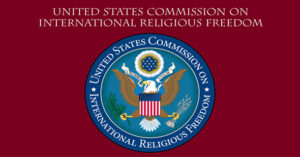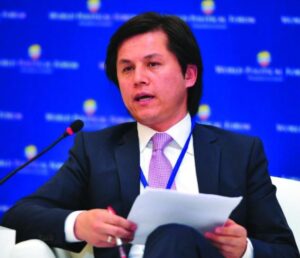 The Chinese authorities are using digital authoritarianism to exert control over religious practices in the country, posing a threat to people in the minority regions of Tibet and East Turkestan (Ch: Xinjiang). This was highlighted during a hearing held on September 13 by the Congressional-Executive Commission on China (CECC), an independent agency of the United States government which monitors human rights and rule of law developments in China.
The Chinese authorities are using digital authoritarianism to exert control over religious practices in the country, posing a threat to people in the minority regions of Tibet and East Turkestan (Ch: Xinjiang). This was highlighted during a hearing held on September 13 by the Congressional-Executive Commission on China (CECC), an independent agency of the United States government which monitors human rights and rule of law developments in China.
According to the CECC’s official website, during the hearing entitled Control of Religion in China through Digital Authoritarianism, it was discussed that as more religious activity and resources move online, especially in response to the Covid-19 pandemic, Chinese authorities have expanded use of digital tools to monitor and suppress online religious expression. Invasive surveillance technologies track and monitor religious groups and individual believers that authorities deem a threat. CECC’s statement on the hearing further said that on March 1 new Measures for the Administration of Internet Religious Information Services went into effect, which require a government-issued permit to post religious content online and ban the online broadcasting of religious ceremonies, rites, and worship services, among a host of other restrictions infringing upon Chinese citizens’ freedom of religion or belief.
 Nury Turkel, Chair of the Commission on International Religious Freedom (USCIRF) who was present as a witness the during the hearing, said, “For decades, the ruling Chinese Communist Party (CCP) has placed religion under tight, comprehensive, and coercive control. It exercises control by using arbitrary laws and regulations and implementing them through a complex but sophisticated web of Party and government agencies at all levels, including the CCP’s United Front Work Department, State Administration for Religious Affairs, and China’s Public Security and State Security apparatus.” He further noted that the crackdown on religion has become increasingly harsh in recent years under the brutal rule of CCP leader Xi Jinping, leading some experts to call his decade-long reign the “bitter winter for religious freedom in China”.
Nury Turkel, Chair of the Commission on International Religious Freedom (USCIRF) who was present as a witness the during the hearing, said, “For decades, the ruling Chinese Communist Party (CCP) has placed religion under tight, comprehensive, and coercive control. It exercises control by using arbitrary laws and regulations and implementing them through a complex but sophisticated web of Party and government agencies at all levels, including the CCP’s United Front Work Department, State Administration for Religious Affairs, and China’s Public Security and State Security apparatus.” He further noted that the crackdown on religion has become increasingly harsh in recent years under the brutal rule of CCP leader Xi Jinping, leading some experts to call his decade-long reign the “bitter winter for religious freedom in China”.
Another witness, Karrie Koesel, Associate Professor at the University of Notre Dame, asserted that the Chinese surveillance state monitors social media to identify and collect information on religious believers and their networks. She said, “Chinese authorities track phone apps that transmit information on user activity and location; it utilises facial recognition technology to follow movement; and relies on an impressive array of CCTV cameras at temples, churches, and mosques to keep tabs on attendance and the content of religious services.”




 Print
Print Email
Email